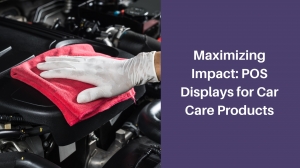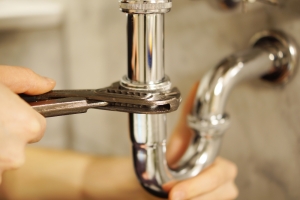Toyota cars have always been known for their build and reliability. However, keeping up with this reputation entails paying attention to certain key components that play a vital role in extending the lifespan of the vehicle. By caring for these parts of the car, Toyota owners can guarantee that their vehicle stays in top-notch condition for a long time to come.
Importance of Regular Maintenance
Keeping up with maintenance is essential for prolonging a vehicle's lifespan. It helps prevent repairs and ensures safety by replacing important parts on time. Knowing which Toyota car parts need to be checked improves a car's performance and overall longevity.
Air Filters: Breathing Life into the Engine
Air filters act like the engine's system by blocking particles from getting in the way of its operation. As time goes on, these filters trap dirt and debris in them, and the airflow can get restricted. A blocked filter could result in decreased fuel efficiency and cause wear and tear on the engine. Changing air filters on a regular basis guarantees that the engine performs at its best and lasts longer.
Oil Filters: Protecting Engine Health
Oil filters help keep the engine clean by capturing impurities found in the oil itself. Oil is crucial to lessen friction among the components in motion, which in turn lessens wear and tear. By following the recommended schedule for changing oil filters, drivers can protect their engines' well-being and prolong their lifespan.
Brake Pads: Ensuring Safety and Durability
The importance of brake pads cannot be overstated when it comes to ensuring vehicle safety on the roadways. The gradual wearing down of brake pads can lead to decreased braking effectiveness and longer stopping distances. Regularly checking and changing brake pads is crucial not only for safety reasons but also to avoid potential harm to other parts of the braking system.
Spark Plugs: Igniting Efficient Performance
When spark plugs spark the air-fuel mixture in the engine's cylinders, combustion happens smoothly and efficiently, which is important for maintaining fuel efficiency and the engine's performance over time. Keeping tabs on them and replacing malfunctioning parts could ensure the longevity of the cylinders.
Timing Belt: Synchronizing Engine Components
The timing belt is responsible for keeping the camshaft and crankshaft in sync to ensure all engine parts work together smoothly and efficiently. If the belt is old or damaged, it can harm the engine. It's crucial to check and replace the timing belt to avoid any breakdowns. A malfunctioned timing belt makes a screeching noise.
Battery: Powering Vehicle Functions
A battery is crucial for keeping a vehicle's electrical components running smoothly. However, batteries' efficiency decreases with time, which can cause problems starting the vehicle. Regularly checking and replacing a battery is necessary to ensure functionality and avoid any sudden malfunctions on the road.
Tires: Supporting Safety and Efficiency
The tires serve as the connection between a vehicle and the road surface, essential for safety and a smooth ride while also impacting fuel efficiency positively. When well maintained through rotational and pressure checks, along with proper alignment, it boosts both tire longevity and overall vehicle performance.
Suspension System: Enhancing Ride Comfort
The suspension system helps cushion the impact of bumps on the road for a ride experience and better handling of the vehicle over time. Parts like shock absorbers and struts degrade with use, which can impact how the vehicle steers and stays stable. Regularly checking and caring for the suspension system is important to maintain a secure driving experience.
Coolant System: Preventing Overheating
The cooling system is responsible for controlling the temperature of the engine to prevent it from getting too hot. Critical parts such as the radiator, hoses, and thermostat contribute significantly to managing this function. It's important to inspect and service the cooling system to prevent overheating and prolong the lifespan of the engine.
Exhaust System: Reducing Emissions and Noise
The exhaust system guides gases away from the engine, decreasing emissions, enhancing fuel efficiency, and reducing noise levels. Through checks and upkeep, the exhaust system maintains standards and boosts vehicle performance.
In Summary
Keeping an eye on Toyota car components can really boost the lifespan of your vehicle! Making sure to maintain and replace them on schedule not only keeps your car running but also saves you from pricey repairs down the road. By giving these parts priority in maintenance routines, Toyota vehicle owners can savor a dependable and long-lasting driving journey.






